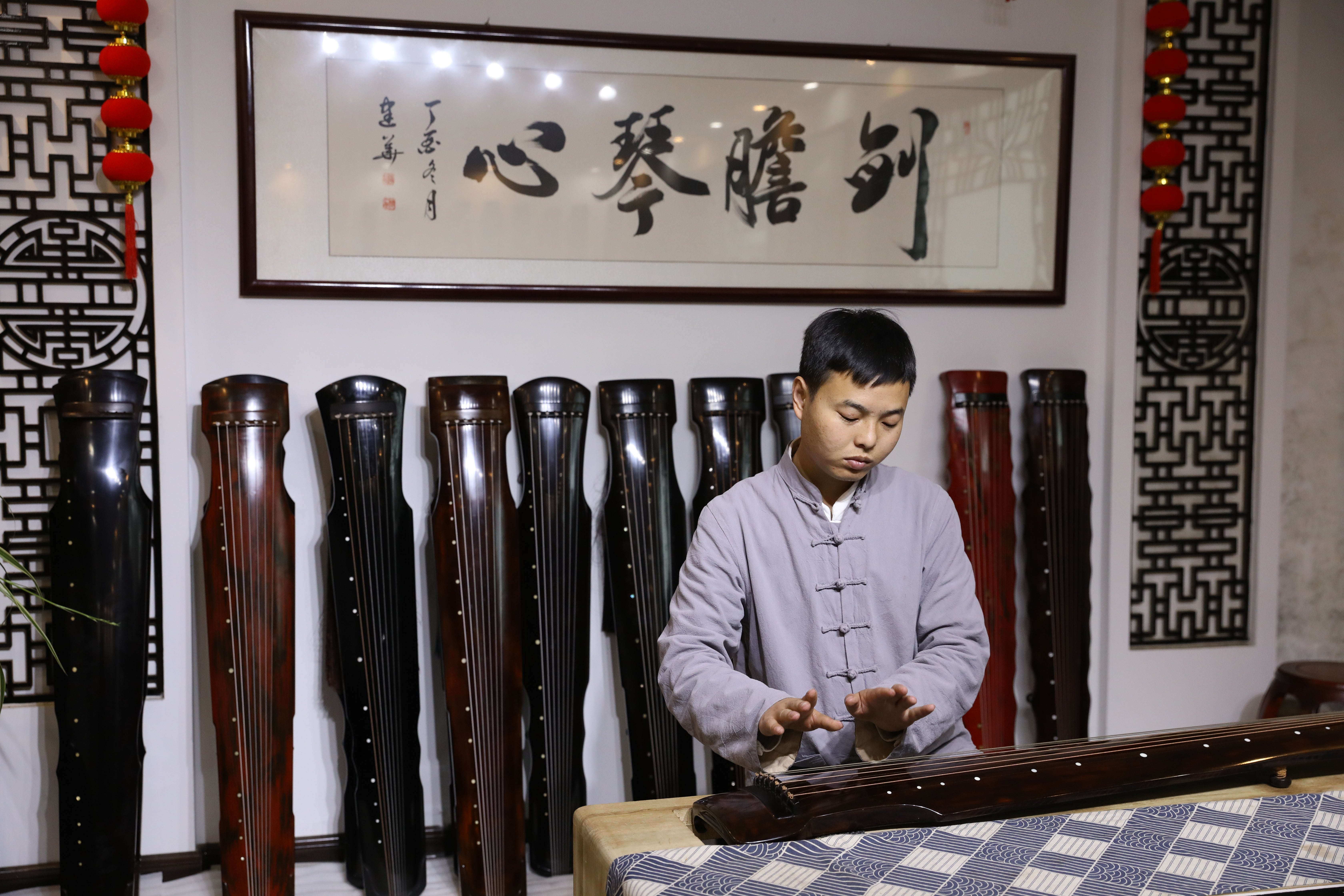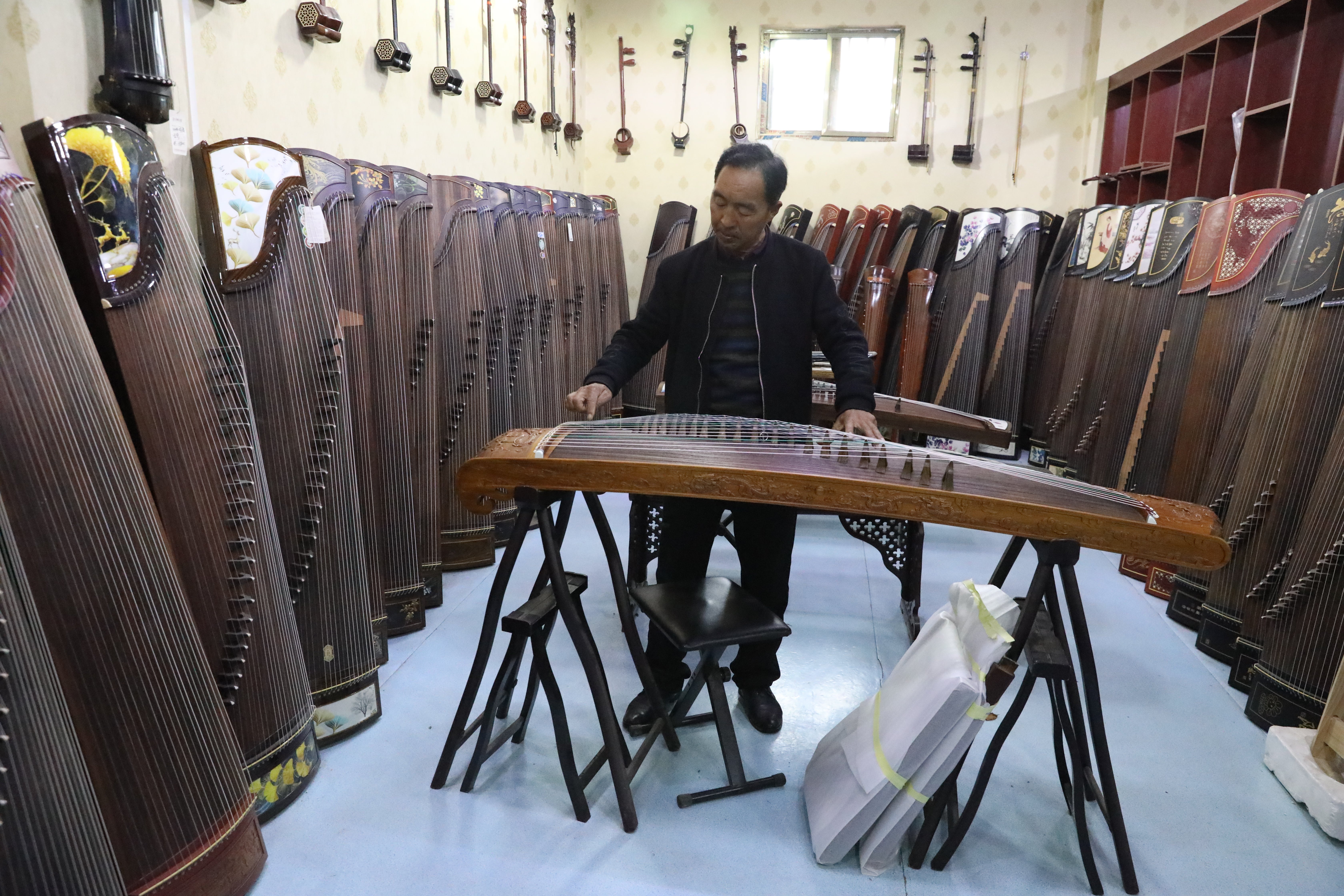Instruments of change
THE ARTICLES ON THESE PAGES ARE PRODUCED BY CHINA DAILY, WHICH TAKES SOLE RESPONSIBILITY FOR THE CONTENTS

Paulownia trees in Lankao county of Henan province stand as stoic reminders of dedication and the ability to survive in harsh environments.
In the 1960s, when locals suffered at the hands of strong winds and sandstorms, paulownia trees were planted across the county as part of the fight to stave off desertification, improve the natural environment and change the lives of future generations.
It’s also a testament to surviving poverty. As a plant it is hard to deform or crack, and with its porous wood, capable of a full resonance and stentorian sound, paulownia is suitable for making musical instruments. In recent decades many residents have carved out a better life and escaped poverty by doing just that.
Now, rows of tall paulownia trees stand straight along the streets of Lankao, with their leaves whispering in the wind, as if telling legendary stories of the county while symbolising a decades-long friendship between humans and nature.
The yard of Xu Yachong, 28, in Xuchang village of Lankao, is permeated with the aroma of paulownia as a woman whittles away at a piece of wood, with dozens of completed guqin, a zither-like seven-stringed plucked instrument, hanging behind her.
In the exhibition and sales room, a man plays a guqin to lure visitors. Xu, together with his wife, broadcasts a melodious ensemble via livestream.

Like many villagers, Xu has developed a whole, family-based, industrial chain for paulownia – production, sales, marketing and giving guqin lessons – through which they turned wood into gold.
“The musical instrument business has greatly improved our lives and of many other families in the village,” Xu said, adding that his homemade guqin can sell from 50,000 yuan (£5,930) to 180,000 yuan, and that, on average, he sells about 300 guqin a year. About 10 per cent of Xu’s instruments are exported to countries such as Germany and Malaysia.
Walking through the village, there is music everywhere. Since the industry took off in the 1980s, about 90 out of Xuchang’s 105 families produce up to 20 kinds of folk instruments, including zithers such as the guqin and guzheng and as well as the pipa, a Chinese lute, and yangqin, a Chinese hammered dulcimer, alongside related products such as stands, stools and other accessories.
Xu initially had no interest in guqin, even though his father was in the business. That changed after he watched the opening ceremony of the 2008 Beijing Olympics, when the beauty of traditional cultural elements such as writing brushes, ink sticks, paper and ink stones, accompanied by music played on guqin, impressed him. After that he developed a hobby based on what he regards “an elegant musical instrument that expresses Chinese culture”.
When he was 16 he began learning how to play the guqin, and he has since travelled across China, in an effort to understand the whole production method and learn different playing techniques.
Once a poor county suffering from sandstorms, floods and unproductive saline soil, Lankao, empowered by the spirit of survival, is now one of the three major folk musical instrument production centres in China.
The county, with about 6 million paulownia trees, produces more than 90 per cent of China’s paulownia wood soundboards. Its 268 factories produce about 700,000 musical instruments and 5 million related accessories a year. Commanding about 30 per cent of China’s folk musical instrument market, its products are sold to more than 10 countries and regions, and annual production value in the county has reached 2 billion yuan (£238 million).
Previously published on Chinadaily.com.cn
